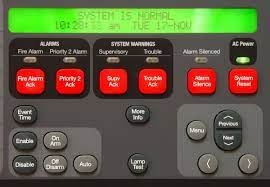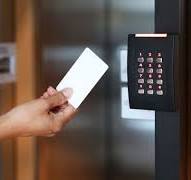The Importance of Fire Alarm Control Panels in Ensuring Safety
Fire alarm control panels play a crucial role in safeguarding lives and property by detecting and alerting individuals to the presence of a fire in a building. These panels serve as the central hub of a fire alarm system, coordinating the operation of various components to ensure timely and effective response in case of a fire emergency.
One of the key functions of a fire alarm control panel is to receive signals from smoke detectors, heat detectors, manual pull stations, and other devices that are part of the fire detection system. Upon detecting smoke or heat, these sensors send signals to the control panel, which then activates alarms such as sirens, strobe lights, and voice evacuation systems to alert occupants of the building.
In addition to alerting occupants, fire alarm control panels also provide vital information to emergency responders. By indicating the location of the fire within the building, these panels help firefighters quickly locate and extinguish the flames, minimizing damage and potential loss of life.
Modern fire alarm control panels are equipped with advanced features such as programmable zones, event logging, and remote monitoring capabilities. These features allow for greater customization and flexibility in configuring the system to meet specific safety requirements and regulations.
Regular maintenance and testing of fire alarm control panels are essential to ensure their proper functioning when needed. Routine inspections help identify any issues or malfunctions that may compromise the effectiveness of the system and allow for timely repairs or replacements as necessary.
In conclusion, fire alarm control panels are indispensable components of any fire protection system. By serving as the nerve center that coordinates detection, notification, and response efforts during a fire emergency, these panels play a critical role in ensuring the safety and well-being of occupants in residential, commercial, and industrial buildings.
Key Advantages of Fire Alarm Control Panels: Centralized Management, Coordinated Emergency Response, Critical Information Dissemination, Advanced Customization Features, and Reliability through Regular Maintenance
- Centralized control hub for fire detection and alarm systems
- Coordinates timely response to fire emergencies
- Provides essential information to occupants and emergency responders
- Equipped with advanced features for customization and flexibility
- Regular maintenance ensures proper functioning when needed
Four Key Drawbacks of Fire Alarm Control Panels: Costs, Complexity, False Alarms, and Power Dependency
- Costly initial investment for installation and setup of fire alarm control panels.
- Complexity in programming and configuring the system may require specialized training or expertise.
- False alarms triggered by system malfunctions or environmental factors can lead to disruptions and loss of credibility.
- Dependency on reliable power sources for continuous operation, which may be affected during power outages.
Centralized control hub for fire detection and alarm systems
The centralized control hub feature of fire alarm control panels serves as a vital advantage in effectively managing fire detection and alarm systems. By consolidating the control of various components such as smoke detectors, heat detectors, and alarms into a single panel, it streamlines the monitoring and response process during a fire emergency. This centralized control hub enables quick and coordinated actions, ensuring that alerts are promptly triggered and appropriate measures are taken to address the situation, ultimately enhancing the overall safety and security of occupants within a building.
Coordinates timely response to fire emergencies
One significant advantage of a fire alarm control panel is its ability to coordinate a timely response to fire emergencies. By receiving signals from various fire detection devices and activating alarms to alert occupants, the control panel plays a crucial role in ensuring that individuals are promptly informed of the presence of a fire. This coordinated response helps to minimize the time it takes for occupants to evacuate the building and for emergency responders to locate and extinguish the fire, ultimately reducing the risk of injury, property damage, and potential loss of life.
Provides essential information to occupants and emergency responders
The provision of essential information to both occupants and emergency responders is a key advantage of fire alarm control panels. By clearly indicating the location of a fire within a building, these panels enable occupants to evacuate quickly and safely, minimizing the risk of injury or loss of life. Simultaneously, the information provided by the control panel allows emergency responders to swiftly locate and address the fire, leading to more effective firefighting efforts and reduced property damage. This seamless flow of critical information enhances overall safety and security in the event of a fire emergency.
Equipped with advanced features for customization and flexibility
Fire alarm control panels, equipped with advanced features for customization and flexibility, offer unparalleled adaptability to meet specific safety requirements and regulations. These panels allow users to tailor the system according to the unique needs of their building or facility, ensuring optimal performance and efficiency. With programmable zones, event logging capabilities, and remote monitoring options, users can easily configure the fire alarm system to suit changing circumstances and enhance overall safety measures. The ability to customize and adjust settings as needed makes these advanced features a valuable asset in maintaining a proactive approach to fire protection and emergency response protocols.
Regular maintenance ensures proper functioning when needed
Regular maintenance of fire alarm control panels is a crucial pro that ensures their proper functioning when needed. By conducting routine inspections and servicing, any potential issues or malfunctions can be identified and addressed promptly, guaranteeing that the system operates effectively during an emergency situation. This proactive approach to maintenance not only enhances the reliability of the fire alarm control panel but also contributes to the overall safety and security of the building occupants by minimizing the risk of false alarms or system failures.
Costly initial investment for installation and setup of fire alarm control panels.
One significant drawback of fire alarm control panels is the costly initial investment required for their installation and setup. The purchase of high-quality control panels, along with the necessary sensors, alarms, and wiring, can impose a substantial financial burden on building owners or facility managers. Additionally, the costs associated with professional installation and configuration by trained technicians further contribute to the overall expense. This financial barrier may deter some individuals or organizations from implementing comprehensive fire alarm systems, potentially compromising the safety and protection of occupants in the event of a fire emergency.
Complexity in programming and configuring the system may require specialized training or expertise.
The complexity involved in programming and configuring fire alarm control panels can present a significant challenge as it often necessitates specialized training or expertise. Setting up the system to effectively detect and respond to fire incidents requires a thorough understanding of the panel’s functionalities and capabilities, which may be beyond the scope of individuals without specific technical knowledge. This complexity can lead to delays in installation or maintenance, as well as potential errors in system configuration that could compromise its ability to effectively safeguard lives and property in the event of a fire emergency.
False alarms triggered by system malfunctions or environmental factors can lead to disruptions and loss of credibility.
False alarms triggered by system malfunctions or environmental factors can have detrimental consequences, including disruptions in normal operations and a loss of credibility for the fire alarm control panel. When the system inaccurately detects a fire and activates alarms unnecessarily, it can cause panic among occupants, leading to unnecessary evacuations and potential chaos. Moreover, repeated false alarms can desensitize individuals to genuine alerts, resulting in a lack of urgency during real emergencies. Additionally, emergency responders may become less responsive to alarms from locations with a history of false alerts, putting lives and property at risk due to complacency. Therefore, addressing issues that contribute to false alarms is crucial to maintaining the reliability and effectiveness of fire alarm systems.
Dependency on reliable power sources for continuous operation, which may be affected during power outages.
One significant drawback of fire alarm control panels is their dependency on reliable power sources for continuous operation, which may be compromised during power outages. In the event of a power failure, the control panel may lose its ability to function properly, potentially leading to a delay in detecting and alerting occupants to a fire emergency. This reliance on uninterrupted power supply highlights the importance of implementing backup power solutions, such as batteries or generators, to ensure that the fire alarm system remains operational even when primary power sources are unavailable.




